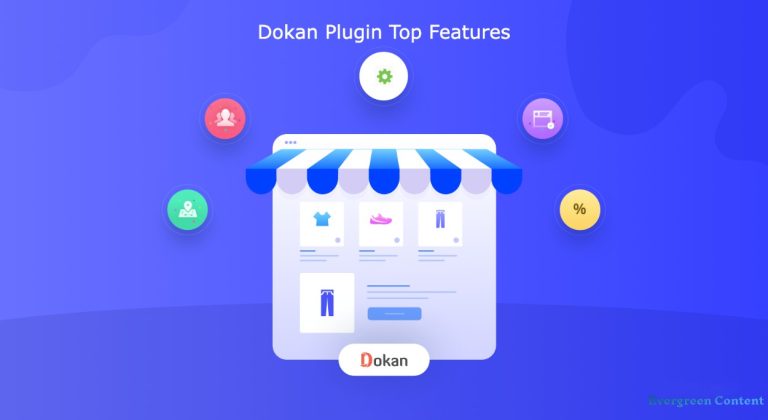Generating Links Through Guest Posts: An Expert Guide for Beginners
How do guest posts help acquire more links in a short period of time?
Guest posting involves writing an article or blog post for another website, typically one and the same or a similar industry. The goal of guest posting is usually to promote your own website or business by including a link back to your site in the author bio or within the body of the post.
Guest posting is an effective way to acquire more links than a regular backlink exchange because it allows you to showcase your expertise and establish yourself as a thought leader in your industry.
By providing valuable and informative content, you can attract readers and earn natural links from other websites that find your content useful and want to link to it.
Another reason why guest posting is more effective than a regular backlink exchange is that it allows you to build relationships with other websites and bloggers in your industry. By regularly contributing high-quality content to these sites, you can establish yourself as a valuable and reliable source of information, which can lead to more opportunities for collaboration and link building in the future.
In summary, guest posting can help you acquire more links than a regular backlink exchange by providing a platform to showcase your expertise, establish yourself as a thought leader, and build relationships with other websites in your industry.
Benefits of Guest Posts in Short
Guest posting allows you to showcase your expertise and establish yourself as a thought leader in your industry by providing valuable and informative content.
By attracting readers and earning natural links from other websites that find your content useful, you can build a network of high-quality backlinks.
Guest posting allows you to build relationships with other websites and bloggers in your industry, which can lead to more opportunities for collaboration and link-building in the future.
Regularly contributing high-quality content to other websites through guest posting can help establish you as a valuable and reliable source of information.
In a regular backlink exchange, you may not have as much control over the quality and relevance of the links you receive, whereas guest posting allows you to target specific websites and ensure that the links you receive are high quality and relevant to your industry.
Guest Posts do not allow getting links automatically

Sharing guest posts on social media and other platforms will certainly help increase their visibility and potentially lead to more links.
When other people share your guest post, it can expose your content to a wider audience and potentially lead to additional backlinks from websites or individuals who found your content through those shares.
It’s important to note that simply getting your guest post shared by others will not necessarily lead to an increase in the number of backlinks counted by SEO tools.
In order to be counted as a backlink, the link must be published on another website and be accessible to search engine crawlers. Simply sharing a link to your guest post on social media or other platforms will not directly result in additional backlinks.
Increasing the visibility of your guest post can certainly lead to more natural links, as more people may see and appreciate your content, leading to a greater likelihood of them linking to it on their own website or blog.
Your backlink count can get higher significantly each time you publish a guest post
It’s possible that publishing guest posts on other websites may lead to an increase in your backlink count for a few different reasons:
By publishing a guest post on a high-quality website, you may be able to earn natural links from readers who find your content valuable and want to link to it on their own websites or blogs.
Publishing a guest post on another website may also lead to an increase in your backlink count if the website allows you to include a link back to your own website in the author bio or within the body of the post. These links will be counted as backlinks by SEO tools.
Sharing your guest post on social media and other platforms will increase its visibility and potentially leads to additional backlinks from websites or individuals who found your content through those shares.
In contrast, a regular backlink exchange may not necessarily lead to an increase in your backlink count for the following reasons:
Some websites may not allow you to include a link back to your own website in the exchange, which means that you will not receive any backlinks in return.
The quality and relevance of the links you receive in a backlink exchange may be lower compared to those you can earn through guest posting. Search engines place more value on high-quality, relevant backlinks, so links from low-quality or unrelated websites may not have as much of an impact on your search engine rankings.
Guest posting is a more effective way to build backlinks because it allows you to showcase your expertise, establish yourself as a thought leader in your industry, and build relationships with other websites. It can also provide the opportunity to earn natural links from readers who find your content valuable and want to share it with their own audiences.
Regular links from old posts do not help like guest posting
It’s true that links from mature, high-quality websites with a lot of traffic and authority are very valuable for search engine optimization. These types of links can help improve the credibility and trustworthiness of your own website in the eyes of search engines, which can lead to better search engine rankings and more organic traffic.
It’s important to note that the value of a backlink is not solely determined by the age or traffic of the linking website. There are many other factors that can influence the value of a backlink, including the relevance of the linking website to your own, the context in which the link is used, and the overall quality of the linking website.
For example, a link from a mature, high-traffic website in a completely unrelated industry may not be as valuable as a link from a newer, lower-traffic website in the same industry. Similarly, a link from a mature, high-traffic website that is buried deep within a page with little content may not be as valuable as a link from a newer, lower-traffic website that is prominently featured in the body of a well-written and informative article.
It’s essential to focus on acquiring high-quality, relevant backlinks from a variety of sources, rather than just targeting links from mature, high-traffic websites. A well-rounded link profile that includes a mix of links from different sources is more effective for search engine optimization than a link profile with a high concentration of links from a single type of website.
Is profile backlink or social backlink or link through commenting still helping to build authority?
Backlinks from profiles, social media, and comments can potentially help to build authority and improve the credibility and trustworthiness of your website in the eyes of search engines.
Backlinks from profiles on websites such as forums or business directories are useful for building credibility and increasing the visibility of your website. But the value of these links is often lower compared to links from high-quality editorial websites. As they are often easier to acquire and may not carry as much weight with search engines.
Backlinks from social media platforms can also be useful for building authority, as they can help increase the visibility and reach of your website. However, it’s important to note that search engines do not typically count links from social media platforms as backlinks in the same way that they do for links from editorial websites. As a result, the impact of social media links on search engine rankings may be limited.
Links from comments on other websites can also potentially be useful for building authority, especially if the comments are made on high-quality websites in your industry and the links are used in a relevant and natural context. However, it’s important to be cautious when leaving comments with links on other websites, as some websites may consider this to be spammy behavior and take action to prevent it.
Overall, it’s important to focus on acquiring high-quality, relevant backlinks from a variety of sources in order to build authority and improve your search engine rankings. While backlinks from profiles, social media, and comments are useful, they should be just one part of a well-rounded link-building strategy.
Profile backlinks are known as black hat SEO practices and are bad in the long run
It’s true that certain link-building tactics, such as purchasing links or participating in link schemes, is considered “black hat” SEO practices and may be considered unethical by search engines. These tactics is designed to artificially inflate a website’s search engine rankings and may be penalized by search engines if detected.
Note that not all forms of link building are considered “black hat” or unethical. In fact, many link building tactics, such as guest posting, content marketing, and public relations, are considered to be “white hat” SEO tactics that is used as part of a legitimate and effective link-building strategy.
Focus on building high-quality, relevant backlinks from a variety of sources in a natural and transparent manner. This means avoiding tactics that are designed to deceive or manipulate search engines, and instead focusing on building links through high-quality content, relationships, and outreach.
What should be the main consideration for developing ideal link-building strategies
There are several factors that you should consider when developing an ideal link building strategy:
Relevance: It’s important to focus on acquiring backlinks from websites that are relevant to your own. Links from websites in the same or a similar industry is more valuable for search engine optimization than links from unrelated websites.
Quality: The quality of the linking website is also important. Links from high-quality, authoritative websites is more valuable for search engine optimization than links from low-quality or spammy websites.
Context: The context in which the link is used can also impact its value. Links that are used in the body of a well-written and informative article are often more valuable than links that are used in the footer or sidebar of a website.
Anchor text: The anchor text (the text that is linked) can also be a factor. Links with descriptive, relevant anchor text is more valuable than links with generic anchor text such as “click here” or “read more.”
Variety: It’s also important to have a diverse and well-rounded link profile, rather than a high concentration of links from a single source. A mix of links from different types of websites and sources is more effective for search engine optimization.
By considering these factors and focusing on building high-quality, relevant backlinks in a natural and transparent manner, you can develop an effective link-building strategy that can help improve your search engine rankings and drive traffic to your website.





